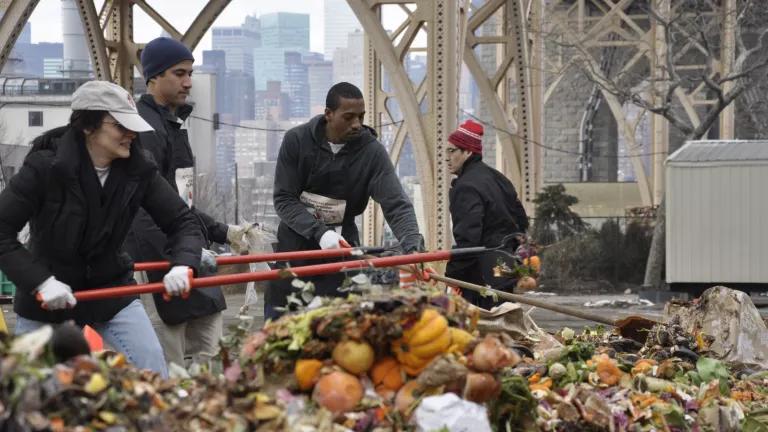Recently, the national media and blogosphere has picked up the story about a bill in Kansas that would outlaw public funding of sustainable development. Most of the stories have been of shock, frustration, or some combination of the two, all harkening back to the now familiar question: “What’s the matter with Kansas?” And while it is important to call out bills like these for their absurdity, it is more important to recognize that this bill is going nowhere in Kansas because it simply does not align with the values of Kansans.
House Bill 2366 states:
No public funds may be used, either directly or indirectly, to promote, support, mandate, require, order, incentivize, advocate, plan for, participate in or implement sustainable development . . .
And then states:
“sustainable development means a mode of human development in which resource use aims to meet human needs while preserving the environment so that these needs can be met not only in the present, but also for generations to come, but not to include the idea, principle or practice of conservation or conservationism.”
As several articles report, this bill was introduced to the House Energy and Environment Committee by its Chairman, Dennis Hedke. He is a contract geophysicist whose has 30 regional oil and gas companies as clients. Representative Hedke is also an outspoken climate change denier and earlier this year was pushing aggressively for the repeal of the Renewable Portfolio Standard (RPS).
It is telling that House Bill 2366, after being introduced two months ago in a legislature with a supermajority of Republicans in both chambers, is not even scheduled to have a hearing. No one, it seems, is particularly interested in advancing this bill. And this should come as no surprise.
Sustainability is important to Kansas voters and businesses because it encourages economic prosperity in conjunction with environmental stewardship. In a survey conducted in January 2013 on behalf of the Kansas Policy Institute (the fossil-fuel funded think-tank that was one of the many organizations trying to repeal the RPS this year), 75 percent of Kansans agreed that communities should work with the Environmental Protection Agency and local groups to plan a “sustainable community.” This included 62 percent of conservatives. And 65 percent of Kansans surveyed wanted their federal and local tax dollars used to develop these plans – a stark contrast to what House Bill 2366 outlines. On the business side, the majority of U.S. companies in the S&P 500 Index and the Fortune 500 now publish sustainability reports, including two of the three companies based in Kansas, Sprint Nextel and YRC Worldwide. And Mars, the candy maker, has an extensive sustainability plan and is committed to creating a “zero carbon footprint.” It chose Topeka as the site of a manufacturing plant.
Statewide, sustainability has proven to provide significant savings. In his first public event as Governor, Sam Brownback in 2011 kicked off the statewide Take Charge! Challenge, a competition among 275,000 Kansans in 16 cities to create the greatest energy savings from implementing energy efficiency measures. The competition was a partnership between the Climate and Energy Project and the Kansas Energy Office, a division of the Kansas Corporation Commission. The competition culminated in 110.2 billion BTUS of gas and electricity saved, 22 million pounds of CO2 emissions avoided (the equivalent of avoiding the carbon emissions of over 513 homes), and an annual value of over $2.3 million in savings.
On a regional and local level within Kansas, sustainability is a priority. The Regional Economic Area Partnership of South Central Kansas, which includes cities like Wichita and Hutchinson, has created a sustainable communities work plan which addresses water, transportation and natural resources. The City of Topeka proudly outlines progress towards its sustainability initiatives, which included increasing lighting efficiency (saving thousands of dollars) and redirecting waste to recycling programs. The City of Lawrence has a Sustainability Advisory Board that advises the City on issues including waste reduction, recycling, energy conservation and natural resource conservation. The County of Douglas has a sustainability coordinator on staff implementing initiatives. I could go on. But the point is that Kansans get it – sustainability is important for the environment and economy, and is something regularly practiced and encouraged.
The hard-won battle over the renewable portfolio standard earlier this year showed this understanding in action. Despite the enormous amount of resources fossil fuel interests were pouring into Kansas to try to repeal the RPS, the RPS prevailed. The 19 wind farms operating in the state have created more than 12,300 jobs for Kansans, $13.7 million in payments to landowners annually, and $10.4 million in contributions to communities each year. Defending the standard was a coalition of faith-based groups, environmental groups, clean energy groups, economic development groups, and farmers, as well as steelworkers, wind developers, county commissioners, and several chambers of commerce. Kansans from all corners of the state shared their stories of how wind energy and the standard are good for Kansas. And when I visited Topeka, several legislators along the political spectrum told me how they liked driving down Interstate 70 in Western Kansas and seeing the windmills turn. How this sight reminded them that the wind that blows was bringing thousands of jobs and millions of dollars to local communities and the state. And this broad, bipartisan sentiment culminated in successfully defending the RPS from attack.
From the strong majority of Kansans who support using public funding for sustainability planning, to the cities and counties who make sustainability a priority, to the stakeholders who speak out to defend clean energy policies that bring jobs and economic vitality to the state, to the state legislators on both sides of the aisle who recognize that true prosperity means protecting the environment while strengthening the economy – this is the Kansas that should be highlighted and praised and supported. Well done, Kansas, keep it up.



